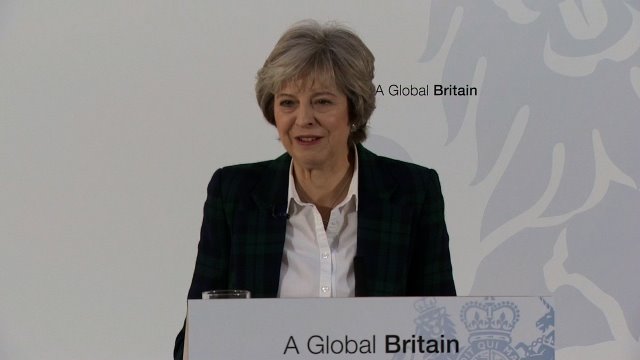British members of Parliament urged Prime Minister Theresa May to challenge US President Donald Trump on some of his most controversial policies — from the use of torture to climate change and his attitude toward women — in a meeting between the two leaders planned for Friday.
May will head to Washington this week and become the first foreign leader to meet with Trump as president.
During Prime Minister’s Questions in Parliament Wednesday, MP Ed Miliband from the opposition Labour Party said the Prime Minister had a “responsibility for the whole international community” to set the right tone. Trump’s ascension to the presidency has raised many questions about US foreign policy.
Climate change
Miliband asked whether May would push Trump to remain in the Paris Agreement on climate change. The President during the campaign vowed to pull out of the pact, saying it threatened economic development and job creation.
Miliband also asked whether May would try to convince the US leader that global warming was not a Chinese hoax, as Trump claimed in 2012 on social media.
“The Obama administration obviously signed up to the Paris climate change agreement,” May said. “We have now done that.”
“I would hope that all parties would continue to ensure that the climate change agreement be put into practice,” she said, without answering the question directly.
The climate change agreement commits countries to reduce their greenhouse gas emissions with the aim of keeping a rise in global temperatures to within 1.5 degrees Celsius. Scientists say a rise above 2 degrees could be catastrophic for the planet.
The United States, under the Obama administration, and China — the world’s two largest polluters — have both ratified the agreement.
Misogyny
Labour leader Jeremy Corbyn asked if May would discuss the issue of misogyny with Trump and raise the concerns of 100,000 people who marched over the weekend in an anti-Trump pro-women’s rights demonstration in London.
May responded that she was not afraid to “speak frankly” with the President, though she did not confirm she would bring up the issue of women’s rights with him.
“I’m pleased I am able to meet President Trump so early in his administration,” May said. “That is a sign of the strength of the special relationship between the United Kingdom and the United States of America — a special relationship on which he and I intend to build.”
“But can I also say to the leader of the opposition, I am not afraid to speak frankly to the President of the United States. I am able to do that because we have that special relationship — a special relationship that he would never have with the United States.”
Torture
May was asked to raise the issue of torture with the President. Trump has said he wants to bring back the technique of waterboarding, a form of torture made infamous by the United States, which used the technique of simulated drowning on terror suspects at secret CIA detention sites as a way to extract information. It has since been banned.
Trump’s pick to run the CIA, Mike Pompeo, has told Congress that he would consider bringing back waterboarding and other so-called “enhanced interrogation measures.”
MP Andrew Tyrie asked whether May could guarantee that Britain would never be drawn into the use of torture as a American ally.
“We have a very clear position on torture. We do not sanction torture, we do not get involved in that. And that will continue to be our position,” she said.
Trade
Key to May’s talks will be the kind of trade relationship the UK could have with the US after the country pulls out of the European Union.
May announced last week that Britain would not remain in the European Union’s single market or customs union, which allows the free flow of goods and labor. She has said she will seek free-trade agreements with individual countries in and out of Europe.
But Trump’s “America first” approach to policy could pose a problem for May. Trump has vowed to pull out of several free-trade agreements and to protect American industries and jobs. Trump on Monday signed an executive order to withdraw his country from the Trans-Pacific Partnership, which aimed to become the biggest trade agreement in the world.
In addition, Britain cannot sign up to any new trade agreements until it is officially out of the EU, a process that is likely to take two years and hasn’t even officially begun yet.
May, nonetheless, appeared optimistic that preliminary talks on trade with Trump would be fruitful, saying she would seek a partnership that would “increase our trade, bring prosperity, bring growth to the United Kingdom.”
“And then my aim for this government is to ensure that the economy works for everyone in every part of the United Kingdom,” she said.
